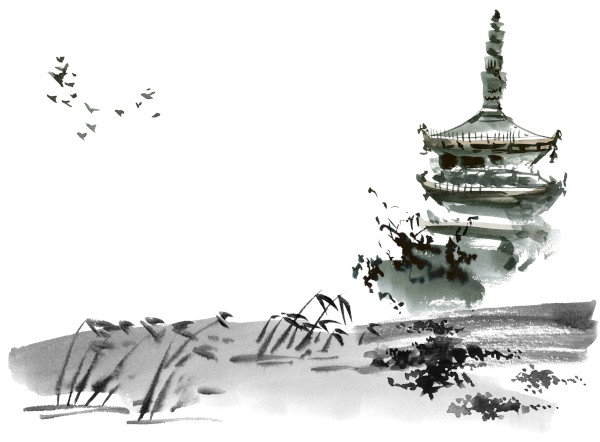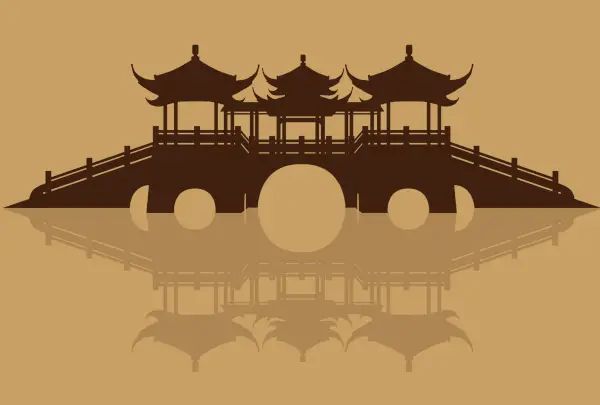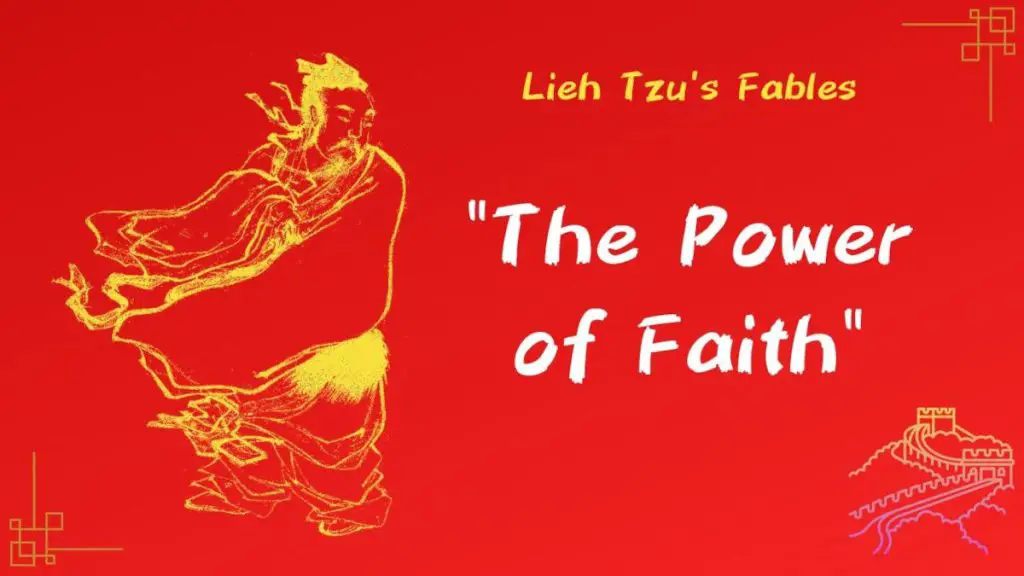This time I will share with you a fable from the book “Leaves From My Chinese Scrapbook “by Henry Balfour (as always, you can find the link to this book at the end of the article). Based on Confucius’ teachings, this story focuses on Mr. Fan’s son, Tzŭ-hua, and a modest man named Shang Ch’iu-k’ai. Through their story, we learn an important lesson about the power of faith and the influence one person can have on others. Let’s read it!
The Fable of “The Power of Faith”
Mr. Fan had a son named Tzŭ-hua who was respected for his noble and generous behavior. In truth, he was widely respected in his home country and adored by the Prince of Ts’in. Although he held no office, his rank was higher than the three Ministers of State. All the people he liked were given honors by the Prince. Those he talked negatively about were immediately destroyed, and everyone who lived in his house was treated as an equal in Court.
Now, some of Tzŭ-hua’s followers were smart and some were dumb, and they were always seeking ways to deceive each other. While some of them were powerful and others were weak, they all attacked and tried to harm one another. However, despite their attempts to harm and discredit each other in Fan Tzŭ-hua’s eyes, he himself had no dislike toward any of them. Instead, he found amusement in watching them day and night, as though it were all a game or comedy, and this viewpoint quickly spread throughout the state.
The most esteemed of Mr. Fan’s visitors, Huo Sheng and Tzu Po, left the house one day and traveled through a distant, unknown area of the countryside. The two spent the night in the house of a man named Shang Ch’iu-k’ai, where they conversed about the fame and power of Tzŭ-hua, claiming that he held the lives and deaths of men in his palms and could enrich those in need and weaken the wealthy. Up until that point, Shang Ch’iu-k’ai had been so poor that he was on the verge of starvation. Hiding outside the window of his two guests, he listened to their discussion.
He was so affected by what he heard that he immediately grabbed a basket and went to Tzŭ-hua’s door to borrow some grain. Now, Tzŭ-hua’s followers were all high-ranking people who wore silk robes, drove fancy carriages, walked slowly like lords, and looked down their noses at others.
When they saw Shang Ch’iu-kai, they were annoyed by his age, his weak appearance, his dark, wrinkled face, and his messy cap and clothes. Soon, they started to insult him and act rudely toward him, pushing, and shoving him around. There was nothing they didn’t do to show how much better they were. Shang Ch’iu-k’ai took all of their rudeness without even showing a hint of anger. He did this until his attackers ran out of ideas and got tired of their game.

Then they took him to the top of a tall tower, where one of them shouted, “A thousand ounces of gold to any man who will jump down!” Everyone else competed to say they would be willing to do it, but Shang Ch’iu-k’ai threw himself over right away because he thought they were sincere. He landed on the ground without even the least damage, and his body looked like that of a flying bird.
Mr. Fan’s people all believed it was a matter of pure chance and acted as if there was nothing unusual or surprising about it; so they pointed to a bend in the river where the water was very deep and said, “There is a valuable pearl at the bottom; dive in and get it.” Shang Ch’iu-k’ai complied once more and dove in; and sure enough, he emerged with a beautiful pearl in his fingers.
The others started to question what kind of a guy, and Tzŭ-hua ordered that a dwelling be constructed for him where he could dress and eat. One day, a fire broke out in the family treasure room, and Tzŭ-hua said to Shang, “If you will venture into the flames and save the dresses that are in danger, I will reward you in proportion to the number of garments you bring out.”
So Shang went right away, without even a hint of fear, jumped into the burning room, and when he came out, he was clean and unharmed. Then they all agreed that he held the True Doctrine and began to justify themselves, saying, “We didn’t know you possessed the Doctrine when we insulted you; we didn’t know you had supernatural powers when we used you dishonorably.” Treat us like scum, mute and blind! After that, we’ll dare to ask you for guidance.
“I have no doctrine,” Shang responded. “I am completely unaware that I have any special powers.” Nonetheless, there is one aspect that is relevant to the discussion, and I will attempt to explain it to you. Recently, two of your friends spent the night in my cottage, and I heard them discussing Mr. Fan’s immense popularity and power, describing how he held men’s lives in his hands, and how he was able to benefit the poor and impoverish the wealthy.
I came here despite of the distance because I intuitively believed all of this, and once I arrived, I assumed that what you guys said was entirely accurate. I was solely concerned that my sincerity may not be flawless, which would cause my performance to also be inadequate. I thus paid no attention to my personal circumstances and had no concern about receiving rewards or suffering harm. My mind was solely focused on one subject, and nothing external could distract me.
That is the only secret I possess. Today I learned for the first time how your group had mistreated me. Previously, I kept my wonder and my skepticism to myself and paid great attention to all I heard and observed. Now, however, whenever I think back to my good fortune in escaping death by fire and by water, I quiver at the very thought, feel heated inside, and shake from head to foot in an imagined state of fear. Do you believe I could possibly endure such horrors once more?
From that point on, anytime the followers of Fan Tzŭ-hua saw anyone on the road, whether a starving person or a horse doctor, they made it a point to get out of their chariots and bow to him instead of treating him cruelly.
Related reading: Finding Personal Growth Lessons In Ancient Chinese Tales – Opens in new tab

Tsai Wo heard about the above event, so he went to Confucius and told him. “Don’t you know,” replied the Sage, “that a man of perfect faith can influence even external objects—can move heaven and earth, as well as all ghosts and spirits—and can travel freely throughout space without encountering any obstruction?” Is it then such a fantastic thing for him to be able to face dangers, even if it means entering fire and water? If Shang Ch’iu-k’ai’s faith worked even when he was dealing with liars, how much more will it work when both the person being trusted and the person being trusted are sincere? Keep this in mind, my children.”
Do you enjoy Chinese fables? Click here for more – Opens in new tab.
End Words
The fable of Shang Ch’iu-k’ai and Tzŭ-hua’s followers imparts a timeless lesson about the power of faith, sincerity, and the ripple effect of one person’s actions on the behavior of others. Shang Ch’iu-k’ai’s unwavering belief in the descriptions he overheard about Tzŭ-hua’s abilities led him to perform astonishing feats without hesitation or fear. His faith magnified his capabilities, allowing him to overcome seemingly impossible challenges. The tale serves as a reminder that genuine faith, unmarred by doubt or skepticism, has the potential to harness our inner strength and even influence the world around us.
Furthermore, the transformation of Tzŭ-hua’s followers demonstrates the contagious nature of sincerity. Shang Ch’iu-k’ai’s unshakable trust in the words he heard prompted a shift in the attitudes of those around him. In turn, their own perspectives shifted, leading them to treat others with greater respect and empathy. This narrative invites us to consider the profound impact that our own beliefs and actions can have on the people we interact with, emphasizing the importance of fostering authenticity, compassion, and positive influence.
You can click and download Henry Balfour’s book “Leaves From My Chinese Scrapbook” (1887) or visit our free Chinese culture library to find it among many more books.
Stay in Touch
 Join our newsletter by using the forms on this website or click here!
Join our newsletter by using the forms on this website or click here! Follow us on Google News
Follow us on Google News Follow us on Facebook
Follow us on Facebook





